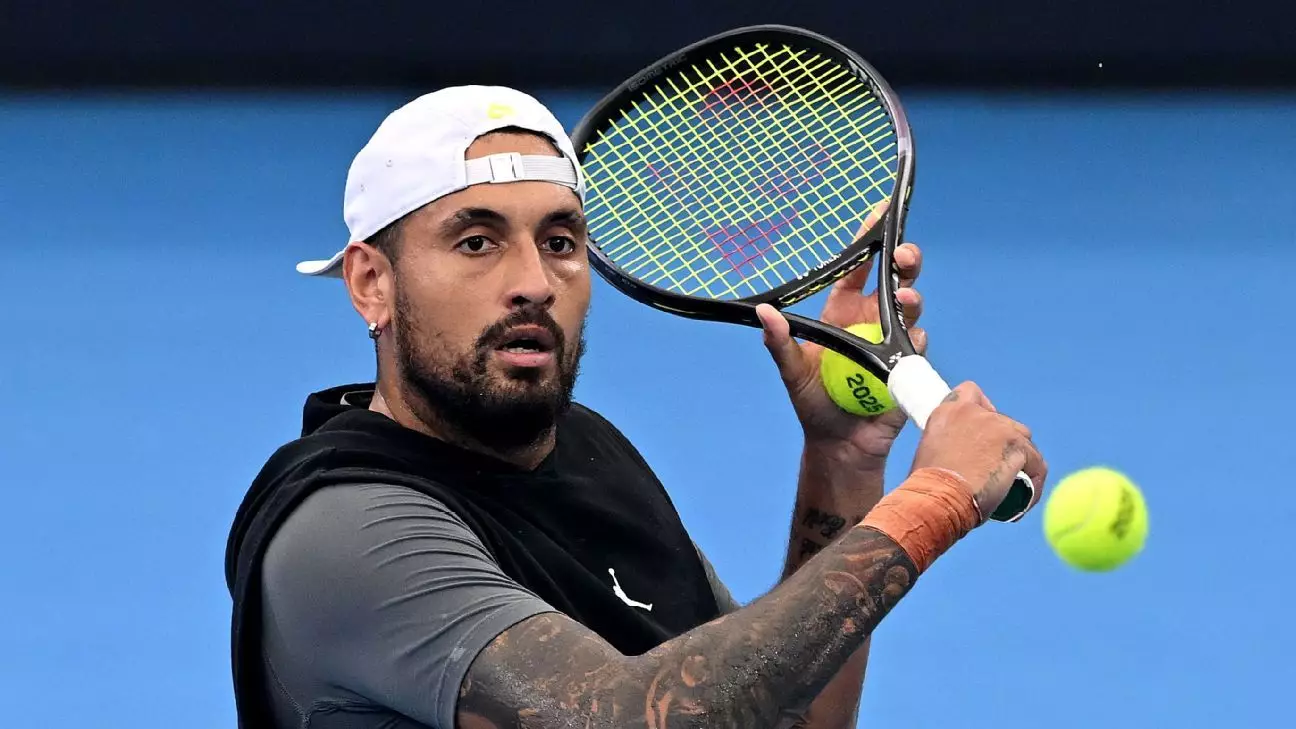The realm of professional tennis is celebrated for its spirit of fair competition and athletic excellence. However, recent allegations of doping involving esteemed players such as Jannik Sinner and Iga Swiatek have cast a shadow over the sport’s integrity. The invocation of anti-doping measures not only jeopardizes the image of tennis but also impinges upon the competitive environment within which players operate. Ex-player Nick Kyrgios has emerged as a critical voice on this subject, vehemently condemning the conduct of these tennis stars.
In the cutthroat world of elite sports, maintaining a clean reputation is paramount. Unfortunately, the International Tennis Integrity Agency (ITIA) has had to introduce charges against notable players, including world No. 1 Jannik Sinner, who tested positive for an anabolic steroid on two occasions, and former world No. 1 Iga Swiatek, who accepted a one-month suspension after testing positive for the banned substance trimetazidine. Such incidents prompt serious questioning of the ethical framework that governs professional tennis.
Kyrgios has not hesitated to express his disdain, labeling these doping breaches as “disgusting” and harmful to the sport’s integrity. His comments highlight a growing concern among both current players and fans about the implications of doping, which not only tarnish individual legacies but also have broader ramifications for the sport itself. According to Kyrgios, having top-ranked players embroiled in doping controversies presents a “horrible look” for tennis, stirring perhaps inevitable doubts among spectators.
For Kyrgios, the gravity of the situation compels him to speak out, especially given his own struggles through injuries. He emphasizes his authentic approach to the sport, stating that despite the availability of substances that might expedite recovery, he would “never even in [his] entire life try and dope.” This philosophical stance resonates with many athletes who aspire to achieve success on the foundation of hard work and dedication rather than pharmacological assistance.
His condemnation of doping extends beyond personal conviction; it touches upon an inherent respect for the sport itself. Kyrgios attributes a level of disrespect not only to those who partake in doping but also to the culture that enables such behavior to be overlooked. He highlights a pertinent point: the willingness of players to remain silent on such crucial matters may reflect a broader systemic issue within tennis, where reputation overrides the need for accountability.
Kyrgios raises critical questions regarding the responsibilities of the athlete’s support team. For example, Sinner’s defense centered on an accidental contamination by his physiotherapist, who allegedly transferred clostebol from his own hand. While this situation merits examination, Kyrgios points out the glaring inconsistency in Sinner’s decision to continue employing the same team for several months post-incident. “Why did they wait five to six months to do anything about it?” he asks, underscoring the need for stricter protocols and accountability among support personnel in professional sports.
His inquiry into the situation reflects a larger conversation about athlete autonomy and the capacity of players to challenge their own entourages. It underscores the idea that athletes have a responsibility not only to themselves but also to their teammates, fans, and the broader integrity of their sport.
Critics have often labeled Kyrgios as contentious due to his outspoken nature, but he remains undeterred. His commentary serves as a reminder that, amid scrutiny and criticism, raising legitimate concerns regarding doping is fundamental to preserving the integrity of tennis. The competitive spirit that drew many athletes to the game can easily be undermined by the pursuit of unearned advantages.
Ultimately, the discussions ignited by these incidents lead to a more profound question: How might the sport collectively reinforce ethical standards? As Kyrgios and others challenge the silence surrounding doping, there lies a potential path toward a more transparent, fair, and ultimately honorable professional tennis landscape. Whether or not the tennis community can rise to meet this challenge remains to be seen, but Kyrgios’s passionate appeal for integrity is a vital voice in this ongoing dialogue.

